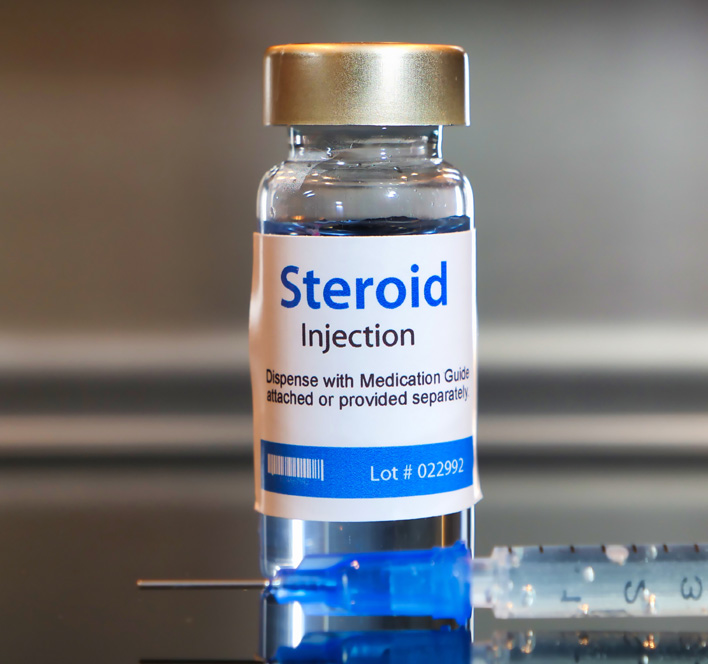Steroid injections may also be referred to as corticosteroid injections or cortisone shots, and these injections can provide relief to those suffering from arthritis, tendinitis, spinal stenosis, and other painful conditions. Although steroid injections come with risks such as infection, headache, and nerve damage, the results can last for six weeks or six months depending on other factors.
It is not uncommon for a doctor to incorporate steroid injections into a more comprehensive treatment plan that may include physical therapy and other medications. For many people, the benefits of steroid injections outweigh the risks. If you want to explore steroid injections as a possible treatment for your condition, you should consult with an experienced doctor. The skilled team of physicians and medical staff at NJ Spine & Orthopedic are prepared to help you relieve your pain.
What Are the Benefits of Steroid Injections?
Corticosteroid injections contain anti-inflammatory medications, and they are injected directly into the inflamed site, which is often a joint. Steroid injections are commonly used to treat the following conditions:
- Arthritis
- Sciatica
- Tendinitis
- Bursitis
- Spinal stenosis
- Chronic back pain
- Injuries such as a pinched nerve or ruptured disc
Steroid injections deliver relief to the painful area by using cortisone to reduce inflammation.
In addition to this major benefit, there are other advantages of steroid injections. For example, the injections can be used to help a patient participate in physical therapy. If a patient needs physical therapy to recover from an injury, steroid injections can relieve the patient’s pain site and allow the patient to do physical therapy more easily. Additionally, steroid injections may allow a patient to postpone surgery like a complete joint replacement. Doctors may recommend the injections to provide enough relief to delay surgery for a patient.
What Are the Risks of Steroid Injections?
Patients face certain risks when they receive steroid injections. Some temporary side effects can occur, such as pain at the injection site, fainting, dizziness, nausea, and headaches. Additionally, steroid injections can increase a person’s blood sugar. If you are going to receive a steroid injection, you should arrange for someone to drive you home after your procedure.
Patients should be aware of the other risks associated with steroid injections. Repeated steroid injections can cause bone damage, cartilage damage, nerve damage, tendon rupture, or other spinal cord damage. Despite these risks, many patients have successfully benefited from the pain relief that steroid injections bring. You should seek the opinion of a trusted medical professional to see if steroid injections are an appropriate treatment for you.
Reach Out to NJ Spine & Orthopedic Today and Find Out if Steroid Injections Are the Right Treatment for You
Living with chronic pain is not easy. People should be able to go about their daily lives without debilitating pain in their backs and/or joints. For some patients, steroid injections deliver the pain relief that they have been looking for and can also postpone the need for surgery. Steroid injections can effectively treat numerous inflammatory conditions, but they do come with certain risks. You should speak with an experienced doctor to see if the benefits of steroid injections may outweigh the risks for you.
At NJ Spine & Orthopedic, our award-winning team of medical professionals will prioritize your care. As you prepare for your appointment, our Concierge Team can assist you every step of the way. We want to help you find relief for your joint pain. Contact NJ Spine & Orthopedic today by calling (866) 553-0612 or by filling out our contact form.

